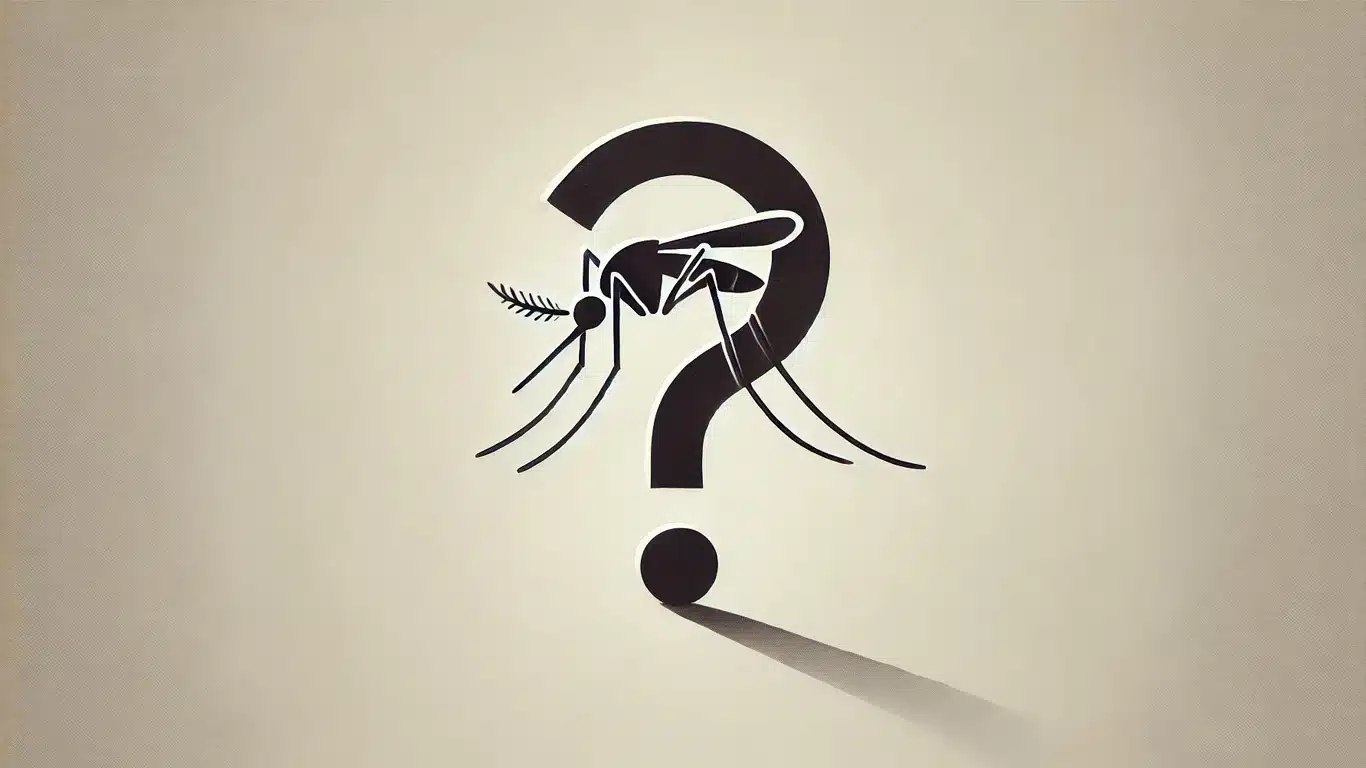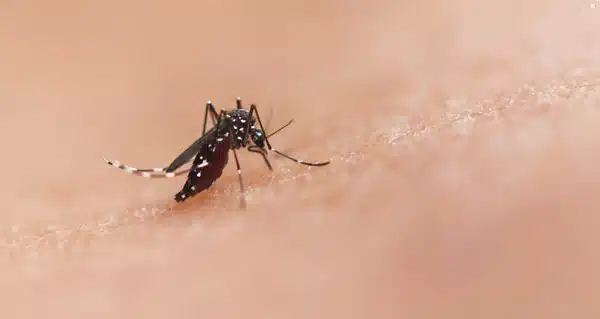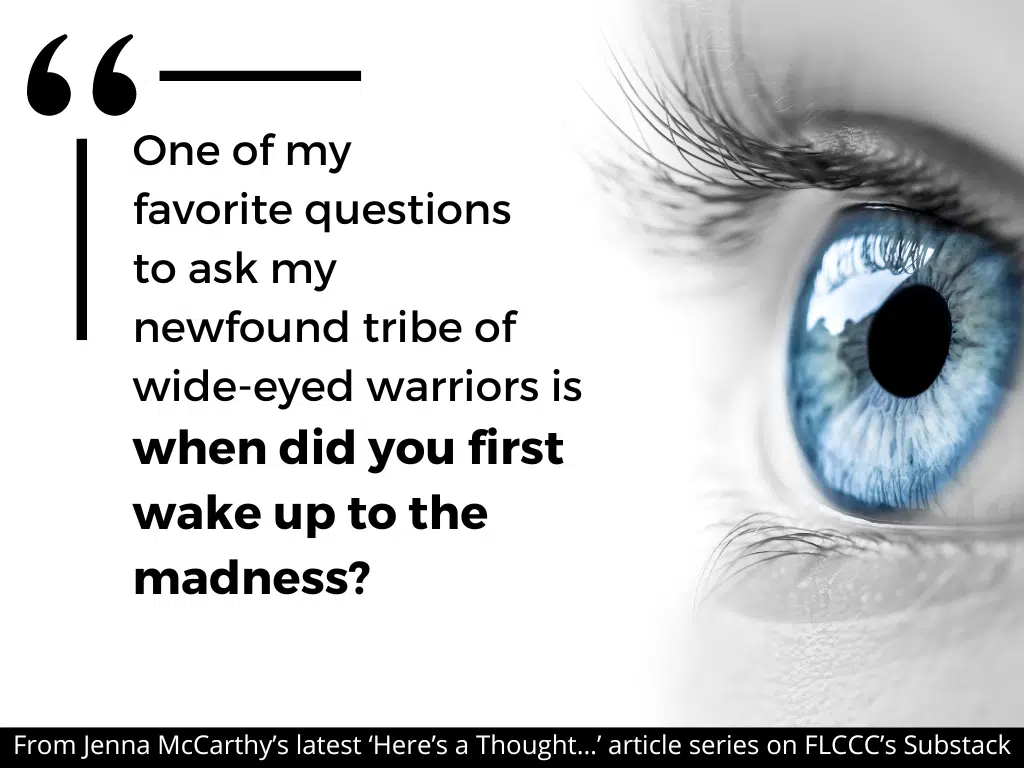Is the buzz about mosquito-borne illness justified? Dr. Ryan Cole tells all: how diseases like malaria & Zika spread + how to protect yourself.

What’s all the buzz about emerging mosquito-borne viruses? We’ve known about malaria for centuries, but now newcomers like Zika and Eastern Equine Encephalitis (EEE) are making headlines and raising alarms. Are these viruses a real cause for concern, or just another media frenzy?
To help us “cut through the noise,” we turn to Dr. Ryan Cole, a distinguished pathologist, researcher, and longtime FLCCC contributor. As a Senior Fellow with the FLCCC, Dr. Cole provides valuable insights into these issues. If you have 15 minutes, click play on his statement below to get the facts about these emerging mosquito-borne threats. Or, keep reading for a comprehensive summary.
There has been a lot of talk about US cases of mosquito-bourne diseases in the news lately. But what’s all the buzz really about? FLCCC Senior Fellow Dr. Ryan Cole (@drcole12) shares important information about these illnesses, prevention and treatment options, and tips on how we…
pic.twitter.com/Q8vdlc6qJb— FLCCC Alliance (@Honest_Medicine)
August 30, 2024
Understanding Mosquito-Borne Illnesses
Mosquitoes are notorious pests. While some might hesitate before swatting a fly, only the rarest pacifist would spare a mosquito—especially when it’s mid-bite. We humans have a natural aversion to parasites, and for good reason. We’ve been aware of their disease-spreading capabilities for centuries, a suspicion confirmed by researcher Sir Ronald Ross all the way back in 1897.
So we know that Mosquito-borne illnesses are diseases transmitted by mosquitoes, and we know that these tiny insects can have a significant impact on global public health. With recent outbreaks in parts of the United States, it’s crucial to understand these diseases, their symptoms, and how to prevent them. Dr. Ryan Cole underscores a balanced perspective: “We shouldn’t quit living normal life. The focus should be on prevention and understanding the real risks, not on unnecessary fear.”
Here’s what you need to know about infectious disease spread by mosquitoes:
- Should You Be Worried About Mosquito-Borne Illness?
- What is the Most Common Mosquito-Borne Disease?
- What Are the Symptoms of Mosquito-Borne Diseases?
- Can Mosquito-Borne Diseases Be Prevented?
- Are There Treatments for Mosquito-Borne Diseases?
1. Should You Be Worried About Mosquito-Borne Illness?
Lately (beginning in late August, 2024), the media has been filled with alarming reports of mosquito-borne viruses spreading across the United States, particularly in the Northeast. These headlines have sparked fear and uncertainty among the public. The reaction has been swift; however, it’s worth considering whether these fears are proportional to the actual threat.
Public health responses, including suggestions for voluntary lockdowns, might seem like the logical step, but they can also create a climate of anxiety. “As you’re aware, the news has been reporting and, frankly, scaring people with an outbreak of mosquito-borne viruses around the United States right now, particularly in the Northeastern United States.” This media-driven fear can often lead to actions that, while well-intentioned, may not always be necessary.
It’s essential to keep things in perspective. As Dr. Cole points out in his explainer video, everyday activities like driving pose a far greater risk. “Let’s put this in perspective. In 2022, there were 45,000 motor vehicle accidents. Did public health knock on your door to take away your car keys?” Sure, mosquito-borne illnesses are a concern, but they do not necessarily warrant extreme reactions.
Here are the real numbers for mosquito-borne diseases, according to the Centers for Disease Control and Prevention (CDC):
- West Nile Virus (WNV): 1,000 to 2,000 cases per year (100 to 150 deaths)
- Dengue Fever: 100 to 200 cases per year (0 deaths; rare complications)
- Zika Virus: Fewer than 100 cases per year (0 deaths; mostly mild)
- Eastern Equine Encephalitis (EEE): Fewer than 10 cases per year (30% mortality rate; 2-3 deaths)
- Chikungunya Virus: Very few cases per year, mostly imported (0 deaths; rarely fatal)
- Malaria: Approximately 1,500 cases per year, nearly all travel-related (0 deaths; rarely fatal in U.S.)
2. What are the Common Mosquito-Borne Diseases?
Several mosquito-borne diseases are prevalent worldwide, each with varying degrees of impact and severity. Among the most common are:
- Malaria: The most widespread mosquito-borne illness globally, primarily affecting tropical and subtropical regions.
- Dengue Fever: Caused by the dengue virus and prevalent in many parts of the world, including parts of the United States.
- West Nile Virus (WNV): Common in the U.S., particularly in warmer regions and during mosquito season.
- Eastern Equine Encephalitis (EEE): A more severe mosquito-borne disease with higher mortality rates, recently resurging in the Northeastern U.S.
- Zika Virus: Known for its mild symptoms but serious implications for pregnant women.
- Chikungunya Virus: Causes severe joint pain and is common in tropical regions.
- Yellow Fever: Prevalent in Africa and South America, can be fatal if not treated.
Each of these diseases is transmitted by the bite of an infected mosquito, emphasizing the importance of mosquito control and prevention.

Aedes Mosquito Bite by an Aedes mosquito. This species can transmit diseases such as chikungunya, dengue, and Zika.
3. What Are the Symptoms of Mosquito-Borne Diseases?
Understanding the symptoms of mosquito-borne diseases can help in early detection and management. Although symptoms can vary, some are common across different diseases.
Symptoms of the Dengue Virus
Dengue fever, caused by the dengue virus, typically presents with severe joint pain, rash, and high fever. This disease is sometimes referred to as “breakbone fever” due to the intensity of the joint and muscle pain it causes. Severe cases can lead to hemorrhagic fever or shock.
Symptoms of the Zika Virus
The Zika virus generally causes mild fever, rash, conjunctivitis, and joint pain. Zika gained international attention due to its link with severe birth defects, such as microcephaly, when contracted by pregnant women.
Symptoms of the Chikungunya Virus
Chikungunya virus also presents with severe joint pain, fever, and rash. Dr. Cole notes, “Chikungunya’s joint pain can last for months, affecting the quality of life far beyond the initial infection.”
Symptoms of the Eastern Equine Encephalitis (EEE) Virus
Eastern equine encephalitis (EEE) is known for its severe symptoms, including high fever, confusion, seizures, and in some cases, inflammation of the brain, leading to conditions like encephalitis or meningitis. Dr. Cole adds:
“Eastern equine encephalitis can be severe in a handful of cases, especially in the elderly and immunosuppressed. Generally, it’s a mosquito bite, with replication of the virus one or two weeks later.”
Symptoms of the West Nile Virus
The West Nile virus (WNV) often results in symptoms like fever, headache, body aches, and joint pains. Some cases can progress to severe neurological conditions, such as encephalitis or meningitis.
4. Can Mosquito-Borne Diseases Be Prevented?
If you want to avoid mosquitos, screen doors and windows will go a long way.

Prevention of mosquito-borne diseases involves a combination of personal protection, environmental management, and public health strategies. Dr. Cole reminds us that we probably know more about preventing mosquito illnesses than we think:
“Common sense would tell you to get rid of pooling water around your house where mosquito larvae will be. Make sure that if you’re going to be outside, use some form of protection.”
How to Prevent Mosquito Bites
A bite from an infected mosquito is the only way these viruses spread to people. So, preventing mosquito bites is essential to avoid mosquito-borne illnesses. Using insect repellents with ingredients like DEET or Picaridin provides effective, long-lasting protection against various mosquito species.
Additionally, employing mosquito netting over beds, wearing long sleeves and pants, and securing window and door screens can minimize exposure. Eliminating standing water where mosquitoes lay eggs is crucial for reducing their populations around homes and communities.
Tools like mosquito lamps, zappers, and coils can further reduce mosquito bites. Mosquito lamps attract and eliminate mosquitoes, while coils release repellent smoke, effectively deterring them in outdoor spaces. Using these devices, along with other preventive measures, adds an extra layer of protection against serious disease.
Natural Remedies and Alternatives
“If you don’t like using DEET, which is in common bug sprays (30% is the recommended amount), there are plenty of protective alternative sprays you can make at home from essential oils—like oil of lemon eucalyptus, lemon oil itself, peppermint oil, clove oil, thyme, and others.”
Unlike DEET, which is a chemical repellent, natural options like essential oils provide a safer choice for those looking to minimize chemical exposure. Planting mosquito-repellent plants like citronella and lavender around homes can further help deter mosquitoes, providing a chemical-free way to reduce bites and protect against diseases spread by mosquitoes.
Public Health Measures
Public health measures can help in managing mosquito-borne diseases (but not without pros and cons).
Many communities implement spraying programs to control mosquito populations, which can include chemical sprays like organophosphates or permethrins. Dr. Cole notes, “Your community may have a spraying program to reduce the numbers of mosquitoes, but it’s important to be aware of the types of chemicals being used and their potential impact.”
He suggests that communities should notify residents about spraying schedules to minimize unnecessary exposure. Additionally, public education campaigns on using insect repellents and removing standing water are key strategies in preventing the spread of mosquito-borne threats.
5. Are There Treatments for Mosquito-Borne Diseases?
While there are no specific antiviral treatments for most mosquito-borne diseases, supportive care remains the cornerstone for managing symptoms. In some cases, innovative approaches are being explored. Dr. Cole mentions the potential use of Ivermectin for RNA viruses, highlighting ongoing research into repurposing known medications for mosquito-borne illnesses. He emphasizes, however, that early detection and supportive care are crucial for effective management.
Interestingly, the use of treatments for mosquito-borne diseases has a long history. For instance, quinine, derived from the bark of the cinchona tree, has been used for centuries to treat malaria. This bitter compound, which became the key ingredient in tonic water, was famously mixed with gin by British colonists in the 19th century to make the drink more palatable, giving birth to the classic “gin and tonic.” Today, hydroxychloroquine, a synthetic derivative of quinine, is still used in some regions to treat malaria.

Living with Mosquito-Borne Illnesses – Stay Informed and Stay Safe
Awareness of mosquito-borne illnesses, their symptoms, and prevention strategies is essential for public health. As Dr. Cole concludes, “Public health should balance awareness with practical actions. Stay informed, take preventive measures, and live your life without fear.”
You can always count on the FLCCC and their army of Senior Fellows for guidance as top experts in their fields. If you found today’s article useful, here’s how you can get more:
- Sign Up for Our Newsletter
- Join The FLCCC Forums
- Sign Up for The FLCCC Weekly Webinar
- Explore Our Provider Database
- Please Donate to Support Our Ongoing Work





